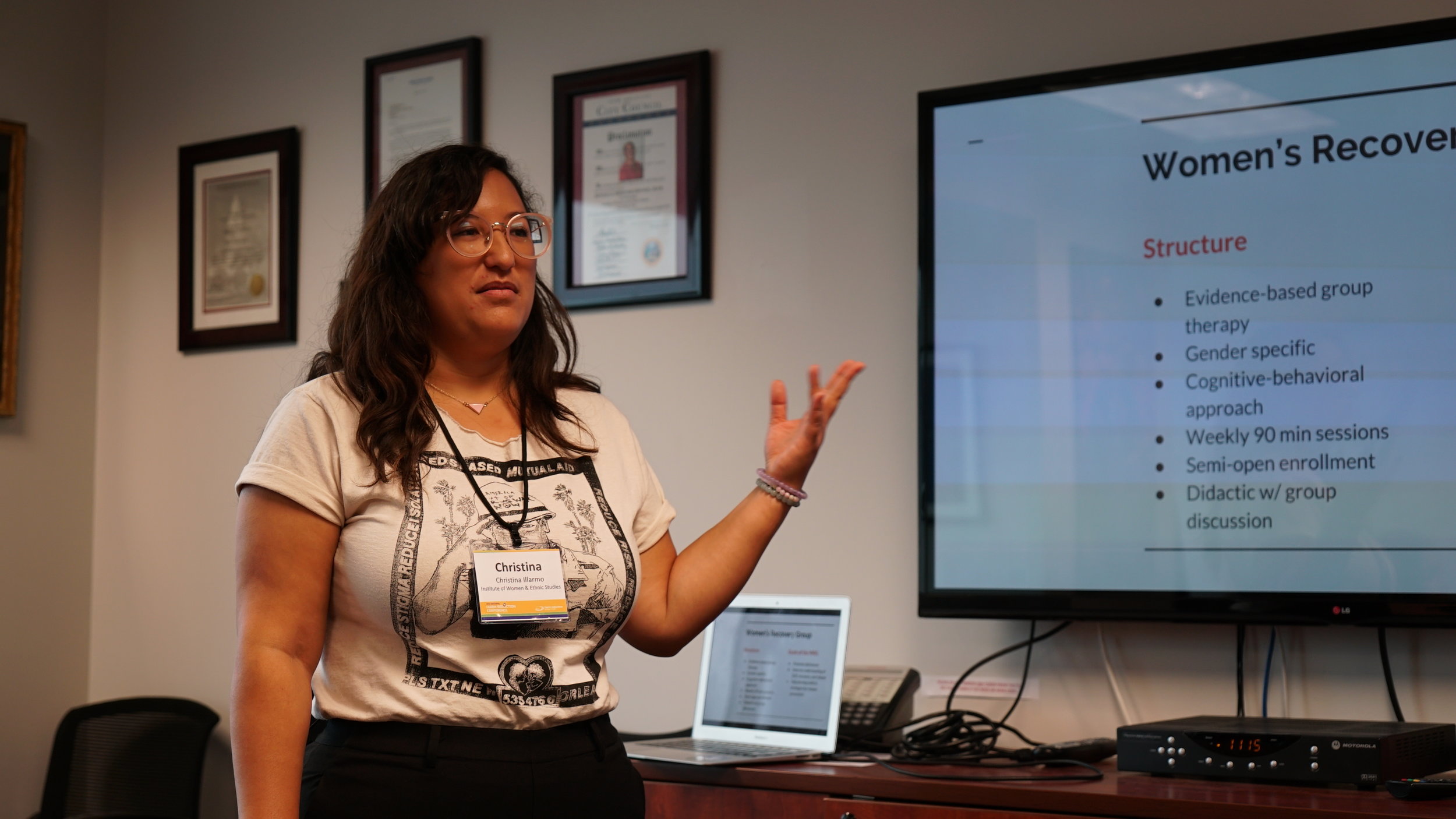IWES, Metropolitan Human Services District, and the Opioid Epidemic
This year IWES began collaboration with Metropolitan Human Services District (MHSD) to expand services for women in the Greater New Orleans Area who have substance use disorders and a history of trauma. With the national spotlight focused on the ongoing opioid crisis, IWES is especially concerned with the vulnerability of women with substance use disorders and the impacts these issues may have on their children and families. Upon request of MHSD Leadership, IWES completed mental health assessments with patients identified by MHSD as recipients of services through the Medication Assisted Treatment - Prescription Drug Opioid Addiction (MAT-PDOA) grant to see if these patients are identifying a history of trauma and symptoms of post-traumatic stress disorder.
During sessions with women in recovery who received services through the MAT PDOA Grant, patients were asked about their experiences in treatment and how they see themselves moving forward in their recovery process. A majority of the women screened were open to additional treatment because they identified they had problems related to trauma, depression, and anxiety that they could use professional support overcoming, and expressed interest in engaging in a Women’s Recovery Group (WRG) facilitated by IWES and MHSD in the winter. Studies show that upwards of 85% of substance abusing women have experienced trauma, which may include experiences such as childhood physical and sexual abuse, rape, and multiple instances of interpersonal violence. In response to these adverse experiences, substance use can become a harmful way a person attempts to cope and manage self-regulation of one’s physiology, emotions, cognition, sense of self, interpersonal relatedness and behavior.
Currently IWES is conducting WRGs at local residential facilities for women and is actively working on a plan to bring WRGs to MHSD locations throughout New Orleans. Utilizing the research and work of addiction psychiatrist Dr. Shelly F. Greenfield, IWES is implementing Dr. Greenfield’s SAMHSA-approved WRG model to provide culturally responsive trauma-based services to women. Each Women’s Recovery Group session is a 90 minute, manual-based relapse prevention group that uses structured women-focused content based on the curriculum’s Central Recovery Rule, which states “Recovery = Relapse Preventions + Repair Work.” This means that to remain in recovery participants will work on identifying triggers and avoiding high risk situations while developing coping skills to deal with unavoidable situations. Participants will also work to repair damaged relationships and damage to self, and learn to enjoy life substance free. Examples of session topics include: the effect of drugs and alcohol on women’s health, obstacles to seeking treatment, getting help for violence and abuse, coping with stress, managing triggers and high risk situations, and substance use and women’s reproductive health.
